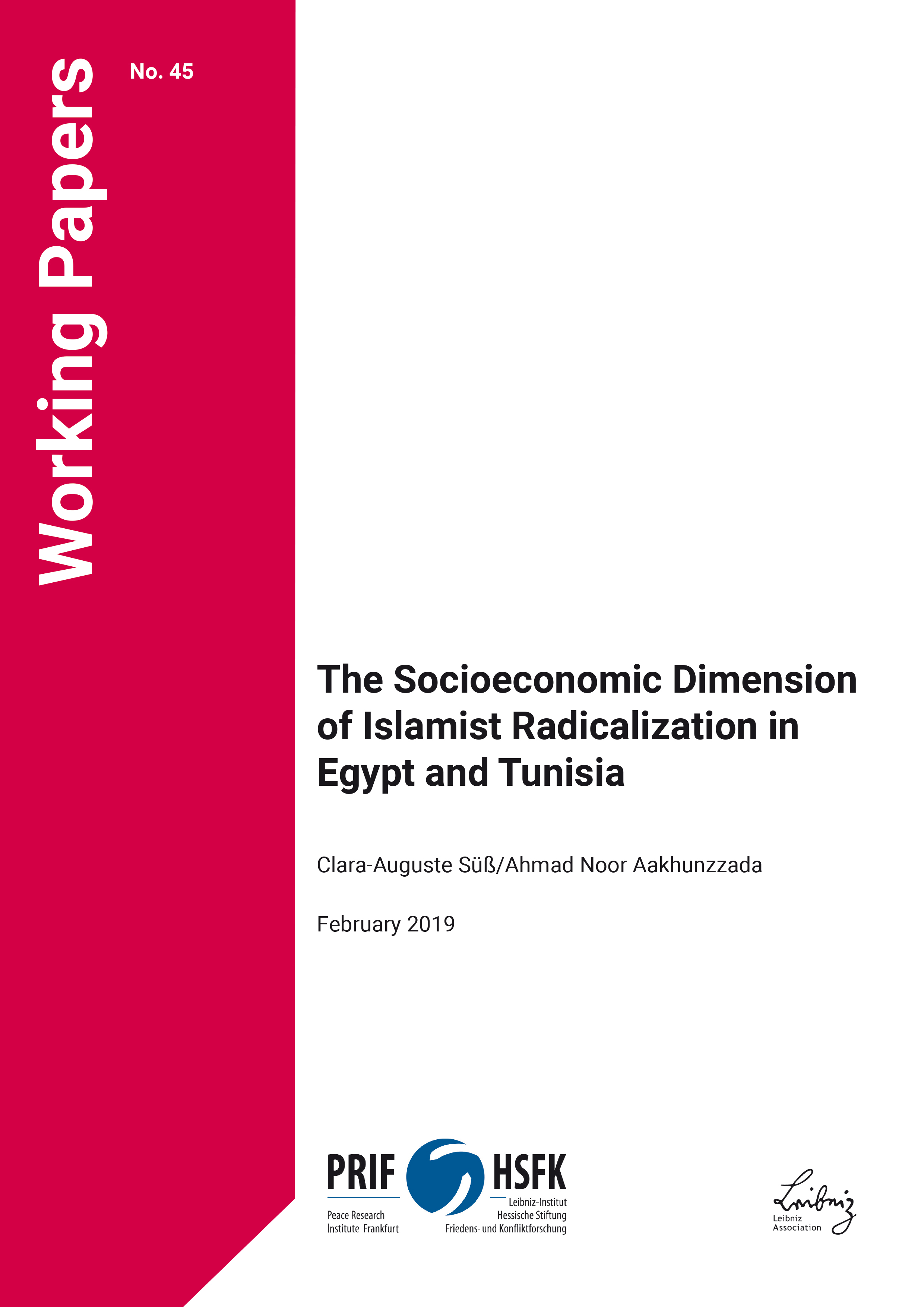Clara-Auguste Süß, Ahmad Noor Baheige Aakhunzzada
The Socioeconomic Dimension of Islamist Radicalization in Egypt and Tunisia
Kurzbeschreibung
Based on a comprehensive study of both academic publications and grey literature and informed by social movement theory, this working paper analyzes processes of Islamist radicalization in Egypt and Tunisia. It develops a theoretical framework that identifies key mechanisms that link socioeconomic factors and Islamist radicalization, and systematically reviews the existing research in order to identify evidence that supports the relevance of each of the different mechanisms. More specifically, we distinguish between socioeconomic grievances, socioeconomic opportunities and framing processes that build on socioeconomic narratives. Socioeconomic grievances can drive radicalization processes (a) by motivating individuals or groups to use violent tactics or join violent groups, and (b) by contributing to the delegitimization of the state, which, in turn, can legitimize the use of violence. Socioeconomic opportunities, which are basically constituted by the (relative) absence of the state and of state services, can contribute to radicalization (a) by facilitating the generation of material resources by violent groups, and (b) by providing radical groups with the opportunity to attract supporters and followers by offering social services. Even if analyzing those mechanisms reveals obvious interconnections in the form of framing processes and socioeconomic narratives, the literature review showed that this constructivist perspective remains understudied.
Deutsche Kurzzusammenfassung:
Dieses Arbeitspapier analysiert Prozesse islamistischer Radikalisierung in Ägypten und Tunesien basierend auf einer umfassenden Analyse von akademischer und grauer Literatur. Als theoretischer Rahmen dient die soziale Bewegungsforschung. Das Papier identifiziert Schlüsselmechanismen, die sozioökonomische Faktoren mit islamistischer Radikalisierung verbinden, und überprüft systematisch die vorhandene Forschung auf die Relevanz der verschiedenen Mechanismen. Dabei wird unterschieden zwischen sozioökonomischen Missständen (grievances), sozioökonomischen Opportunitäten und Framing-Prozessen, die auf sozioökonomischen Narrativen aufbauen. Sozioökonomische Missstände können Radikalisierungsprozesse antreiben, indem sie (a) Einzelpersonen oder Gruppen dazu motivieren, gewalttätige Taktiken anzuwenden oder gewalttätigen Gruppen beizutreten und (b), indem sie zur Delegitimierung des Staates beitragen, was ebenso Gewalteinsatz legitimieren kann. Sozioökonomische Opportunitäten, die im Wesentlichen aus der (relativen) Abwesenheit des Staates und staatlicher Dienstleistungen bestehen, können zu Radikalisierung beitragen, indem sie (a) gewalttätigen Gruppen den Zugang zu materiellen Ressourcen erleichtern und (b) diesen Gruppen ermöglichen, Unterstützer und Anhänger durch das Angebot von Wohlfahrtstätigkeiten zu gewinnen. Obwohl diese Mechanismen offensichtliche Zusammenhänge in Form von Framing und sozioökonomischen Narrativen zeigen, vernachlässigt die Forschung diese konstruktivistische Perspektive.
This Working Paper is not available at the moment. The contents of the paper are submitted to a journal for publication.
Bibliographische Angaben
Süß, Clara-Auguste / Aakhunzzada, Ahmad Noor Baheige (2019): The Socioeconomic Dimension of Islamist Radicalization in Egypt and Tunisia, PRIF Working Papers No. 45, Frankfurt/M.
